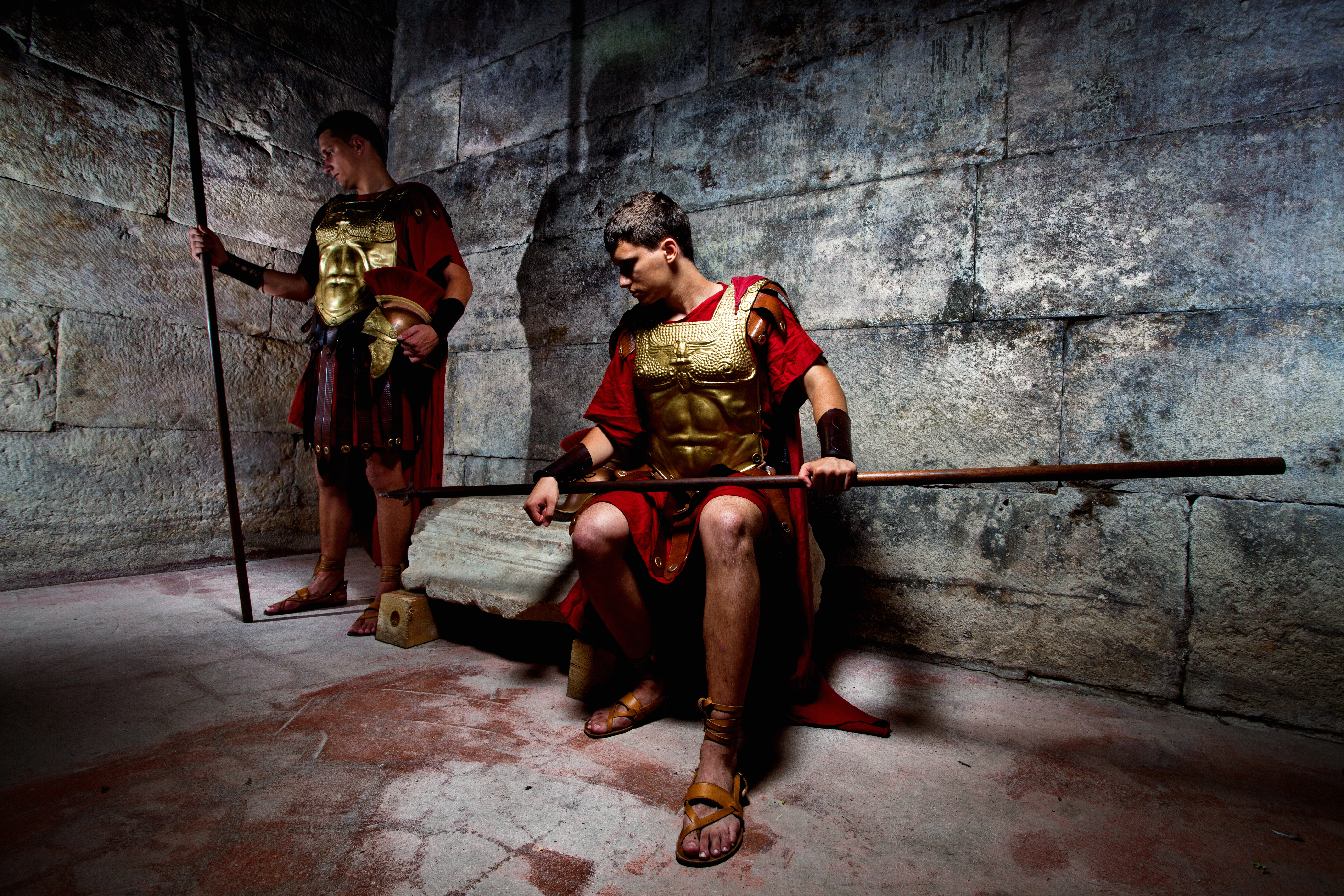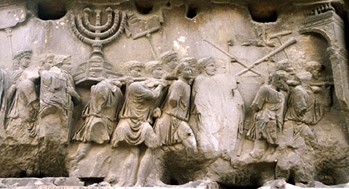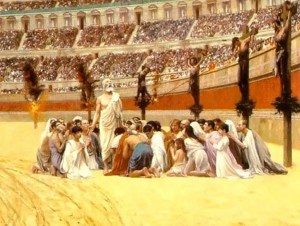
Christian persecution in 96 AD/CE, the time of Obedient unto Death, was not an all-out war against Christians. The Romans, in general, were tolerant of diverse religions; they had to be. As the Roman empire expanded and conquered lands as far away as current-day Britain, Africa, Germany, and Israel, they had weightier issues to deal with than what gods the locals were sacrificing to or what month their festivals occurred. Allowing subjugated people to practice long-held customs and religions was an easy trade-off for their new subjects pledging their allegiance to the Roman emperor, providing soldiers for the Roman army, and paying taxes, lots and lots of taxes. Revolts or deviations from these requirements were met with brutal force, mass slaughter, cities annihilated, and any surviving citizens sold into slavery. Case in point, Jerusalem 70 AD/CE.
The Jewish revolt against Rome and the destruction of Jerusalem was a pivotal point in Jewish/Christian history. Until that holocaust, the Christians were considered a peculiar sect of Judaism, both by Rome and much of Judaism. Although that tie would wane over the next several decades, the subsequent diaspora or dispersion of Jews and Jewish Christians throughout the Roman empire gave Christian communities an identity as a new and separate religion apart from Judaism. You can get a master’s degree in the study of this transition, so you might notice a few salient points absent from this one-paragraph synopsis.

This separate Christian identity was both good and bad. After Rome crushed the rebellion and gutted Jerusalem, killing 1,100,000 and taking 97,000 prisoners as slaves, the Romans kept a wary eye on any new Jewish uprisings, so not being under military scrutiny was good. On the flip side, Judaism was an ancient and revered institution with a long-respected history. Romans loved tradition, and Christianity had benefited from that association. They lost that esteemed status as a new religion and were no longer considered legitimate or even a “real” religion.
Scandalous rumors about obscene Christian rituals circulated at an early date, and we know that they were accused of disloyalty because of their refusal to perform the token ritual acknowledging the divine status of the Emperor….(1)
What got Christians in trouble was that they claimed allegiance to another kingdom, to another king, The Emperor Nero took advantage of the distrust and skepticism toward the new believers. Theories abound that after a large portion of Rome burned, Nero re-directed the animosity and blame aimed at him to this group of suspicious pagans (Christians didn’t worship the Emperor or the official gods Zeus, Artemis, Apollo, etc.) Accused by Nero for setting the fire and targeted for punishment, Christians in Rome were hunted down, arrested, and tortured.
And perishing, they were additionally made into sports: they were killed by dogs by having the hides of beasts attached to them, or they were nailed to crosses or set aflame, and, when the daylight passed away, they were used as nighttime lamps. Nero gave his own gardens for this spectacle and performed a Circus game… (1)
For the next 250 years, until Emperor Constantine, Christianity continued as a dubious religion, suspect in its bizarre practices and beliefs, and hated for its condemnation of the state religion’s plurality of gods.
In the era that “Obedient unto Death” is set, the empire and Christianity had established a delicate balance of don’t ask, don’t tell. The majority of the governors and ruling officials could and did look the other way and tolerated this small but growing population of religious zealots. Emperor Domitian was an exception. He demanded to be worshiped, relegating anyone who didn’t comply as a criminal. Again, individual governors and officials could overlook this worship failure unless the dereliction was reported to a Roman official who was forced to act. The accused Christian was arrested and sentenced to death, often in the arena during a festival. No sense in wasting free entertainment.
Unlike other religions, Christians corporately worshiped and celebrated weekly, bi-weekly, or daily. Because Romans often worked dawn to dusk, seven days a week, many Christian worship services were held in the evenings or early morning before the congregants went to work. Authorities banned clandestine night meetings, viewing them as hotbeds for inciting rebellion. Although Christianity wasn’t technically outlawed, many of its practices, such as night meetings and not participating in the local gods’ official rituals and festivals, were considered subversive and treasonous.
During Sabina’s (my sleuth’s) lifetime, the experience of a Christian would have depended on where you lived, who your governing officials were, and your neighbor’s tolerance or ignorance of your faith. An argument with a merchant could land you in prison if the merchant could prove you were a member of this radical sect.

How does a Christian carry out the command to tell all the world about Christ in a state where your faith is under siege? How did the characters of Obedient unto Death navigate this treacherous path? The martyrdom of all the apostles except John demonstrates the stark reality Sabina and her brothers and sisters in Christ faced. Join Sabina in ancient Ephesus as she confronts danger, solves murders, and discovers many of God’s mysteries.
1) Tacitus (c. 55 -117 CE): Nero’s persecution of the Christians | Common Errors in English Usage and More | Washington State University (wsu.edu)